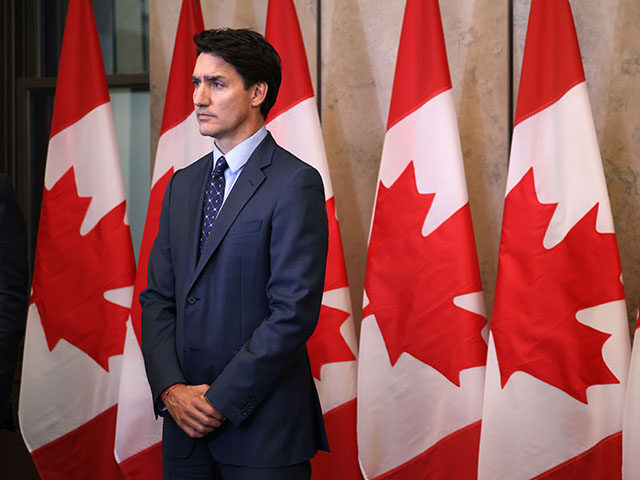Unhappy members of Canadian Prime Minister Justin Trudeau’s Liberal Party lashed out at him during a closed-door caucus meeting Wednesday.
At least 20 Liberal members of parliament reportedly called on Trudeau to resign or face a revolt in his caucus.
Trudeau has become highly unpopular with the Canadian people, who are widely expected to hand the Liberals a major defeat in next year’s scheduled election. Recent public opinion polls have shown the Conservative Party with a crushing 20-point lead.
Liberal unhappiness with their party leader grew into a burgeoning caucus revolt after two shattering election losses for the party, Toronto in June and Montreal in September.
In October, some Liberals began circulating an internal petition to demand Trudeau’s resignation. The document had no binding authority, but it was meant as a way to get names on paper, so the caucus rebels could not easily be intimidated or bought off by the prime minister.
The current version of the document from disgruntled Liberals has about two dozen signatures, and tells Trudeau to decide if he will resign by October 28. There are 153 Liberal members of parliament, so two dozen is not an overwhelming number, but it is evidently a large enough group to make Trudeau nervous.
Wednesday’s meeting lasted about three hours, and reportedly included both demands for Trudeau to step aside, and suggestions for steps he might take to reassure his party.
“All you have to do is look at polling. The Liberal Party has obviously fallen out of favor with the public,” said MP Ken McDonald, who signed the letter telling Trudeau to make his decision by October 28.
“I think he still needs to step down,” said MP Wayne Long, who was the first to openly call for Trudeau’s resignation.
“Hopefully the prime minister will reflect on what was said,” Long added.
Another caucus rebel, MP Sean Casey, seemed to think Trudeau’s goose was cooked. Casey said the inevitability of Trudeau’s departure “will become evident” in the coming weeks.
On the other hand, Immigration Minister Marc Miller seemed to think Trudeau had the rebellion under control, and would almost certainly be the Liberals’ candidate against Conservative leader Pierre Poilievre in the next election.
Miller said he “respects the hell” out of disgruntled colleagues who “were brave and stood up and said things to his face.”
“This isn’t a code red situation. The prime minister can sure as hell handle the truth,” Miller said.
“The prime minister has to listen to the frustrations – in some cases, very valid frustrations of caucus colleagues – and incorporate that into changes moving forward,” Liberal MP Nathaniel Erskine-Smith said after the meeting.
“My colleagues need to turn the knives outwards and not inwards, and need to focus on the most important thing, which is getting things done in Parliament, and taking the fight to Pierre Poilievre because he’s a disaster to this country,” Erskine-Smith said.
Trudeau himself did not have much to say after the meeting, aside from a boilerplate assurance that “the Liberal Party is strong and united.”
One problem faced by the Trudeau Must Go crowd is their failure to put forward an alternative leader for the party, or a compelling argument that such a leader would fare better in the polls than the sitting prime minister.
The rebels also have no internal party mechanism for forcing Trudeau aside, but McDonald proposed a daring nuclear option on Wednesday: disgruntled Liberals could vote against Trudeau the next time the Conservatives call a confidence vote against him.
“If the Prime Minister doesn’t respond in some way … what happens when the next confidence vote comes before the House of Commons? Are we going to stand and vote with non-confidence, or are we going to stand and vote with the government?” McDonald wondered aloud, in a rather menacing way.
“Maybe how the prime minister responds to this letter might give some indication,” he said, meaning the letter calling on Trudeau to resign.

COMMENTS
Please let us know if you're having issues with commenting.